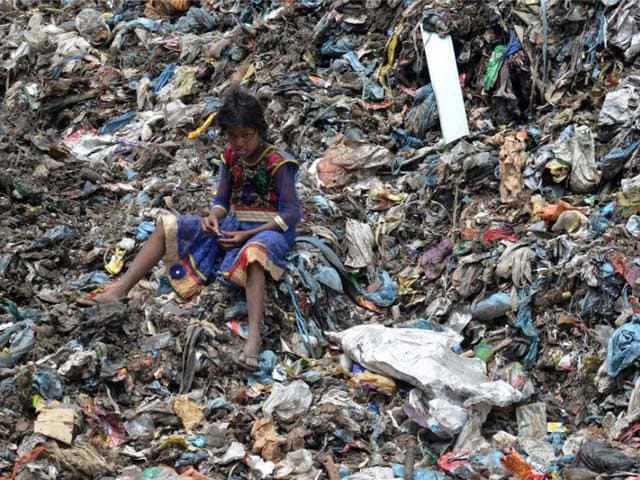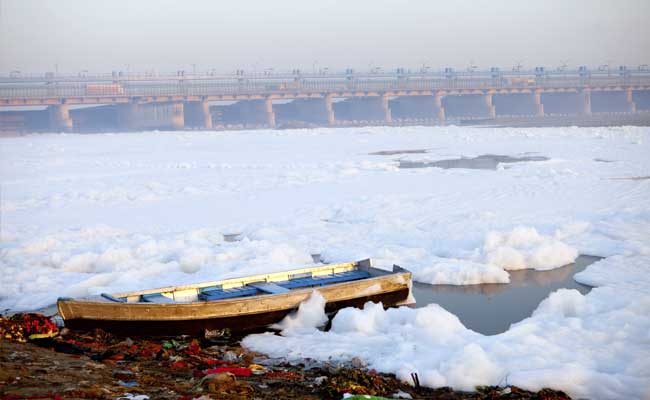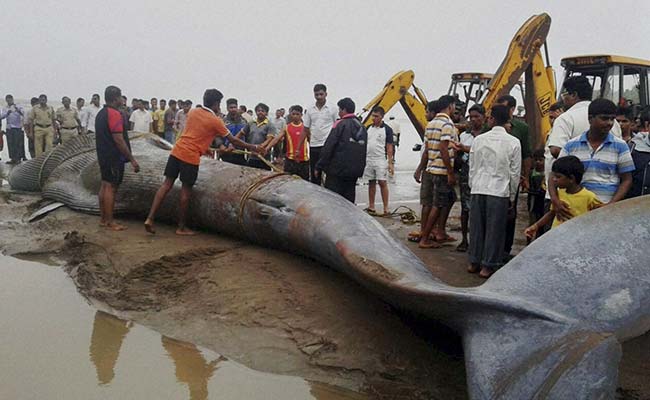
So Sunday was another World Environment Day. Established by the UN, this was marked for the first time in 1973. Since then it has been celebrated every year and is usually marked under a theme. This year the theme is "Join the race to make this world a better place".
World Environment Day is commemorated to focus the whole world's attention on why the environment is crucial and make us aware of what we are doing to it.
That's the hope anyway.
Now, the facts. This year stands as of now as easily the hottest year ever recorded in the past hundred years. So did last year and the year before that. Sure, this year had the El Nino to thank for such dismal weather, but it's also an unavoidable truth that right now, we are living with more carbon in our atmosphere than there has ever been before in the entire cycle of human history, since before the Industrial Age.
 However, key world leaders deny climate change; those who do believe it still carry on with business as usual. We are in the middle of the sixth mass extinction. Species are dying out faster than ever before. The last time this happened, dinosaurs disappeared toppling reptilian supremacy, making way for mammalian ascent. So congratulations to us, we are proving more destructive than some enormously large volcanoes and an asteroid.
However, key world leaders deny climate change; those who do believe it still carry on with business as usual. We are in the middle of the sixth mass extinction. Species are dying out faster than ever before. The last time this happened, dinosaurs disappeared toppling reptilian supremacy, making way for mammalian ascent. So congratulations to us, we are proving more destructive than some enormously large volcanoes and an asteroid.
The oceans stand at a tipping point as we have overfished and polluted the waters that give us life. As the oceans are enormous carbon sinks and produce close to 60% of the oxygen we breathe on this planet, this is a trifle short-sighted of us. The worst of it is that over 27 million tonnes of what is taken out of the ocean is casually chucked away as by catch (the unwanted fish and other marine species trapped by commercial fishing nets whilst fishing for specific species). Millions of tonnes go to waste in markets. Yet, people are still starving around the world. Millions have no clean water to drink and die from water-borne diseases while millions more breathe shockingly polluted air. Case in point: in India, there is not one city that is not polluted, most water bodies are toxic including many of our life-bringing rivers. We are finding toxins and pesticides in most of the food we are consuming and cycles of drought, heat and floods have affected and are affecting millions.
 Better facts? We live on a miracle. Out of thousands, hundreds of thousands, millions of permutation combinations, life found a way on our planet. Conditions came together in a perfect storm and there was the first life form on earth. From that single cell, life continued to find a way and through hundreds of thousands of other permutation combinations, homo sapien or the thinking ape came to be. So we are a miracle. Once an ape, then several human like species or humanoids, and finally just who we are. In our ocean, there lives the blue whale. It's the single-largest creature to have ever lived in the history of all of the species on the planet; the biggest-ever in 3.8 billion years of history - and it lives in our time! On land, we have one of the world's fastest runners, the cheetah, and in the air we have the world's fastest animal, the peregrine falcon, attaining speeds of up to 280 km an hour when it hurtles towards a prey. Even the cycle of predator and prey is a miracle. To the untrained eye, it looks like a lot of killing. The truth, however, is that predators bring life to their prey by taking out the slow, the sick, the less vigilant. Sometimes they do take out the babies and the young, but that controls populations from exploding, enabling the balance of life to be maintained.
Better facts? We live on a miracle. Out of thousands, hundreds of thousands, millions of permutation combinations, life found a way on our planet. Conditions came together in a perfect storm and there was the first life form on earth. From that single cell, life continued to find a way and through hundreds of thousands of other permutation combinations, homo sapien or the thinking ape came to be. So we are a miracle. Once an ape, then several human like species or humanoids, and finally just who we are. In our ocean, there lives the blue whale. It's the single-largest creature to have ever lived in the history of all of the species on the planet; the biggest-ever in 3.8 billion years of history - and it lives in our time! On land, we have one of the world's fastest runners, the cheetah, and in the air we have the world's fastest animal, the peregrine falcon, attaining speeds of up to 280 km an hour when it hurtles towards a prey. Even the cycle of predator and prey is a miracle. To the untrained eye, it looks like a lot of killing. The truth, however, is that predators bring life to their prey by taking out the slow, the sick, the less vigilant. Sometimes they do take out the babies and the young, but that controls populations from exploding, enabling the balance of life to be maintained.
Balance: something nature is very fond of. In fact, it's her raison d'etre.
As the cosmologist Carl Sagan, once famously said, "We are a way for the universe to know itself. Some part of our being knows this is where we came from. We long to return. And we can, because the cosmos is also within us. We're made of star stuff."
 That applies for everything alive. The building blocks are the same the permutation combinations however so beautifully different allowing for that other miracle, bio diversity, the key to life and survival. It is why there is literally just a 1% difference between us and bonobos and just 2% between us and gorillas. In fact, we are so closely related to the fruit fly, that scientists study them to understand certain human conditions. Plants and animals might be markedly different, but our DNAs are a double helix and the DNA molecules are made from the same four chemical building blocks called nucleotides.
That applies for everything alive. The building blocks are the same the permutation combinations however so beautifully different allowing for that other miracle, bio diversity, the key to life and survival. It is why there is literally just a 1% difference between us and bonobos and just 2% between us and gorillas. In fact, we are so closely related to the fruit fly, that scientists study them to understand certain human conditions. Plants and animals might be markedly different, but our DNAs are a double helix and the DNA molecules are made from the same four chemical building blocks called nucleotides.
So when we are that deeply entwined with our planet, indeed the universe, why are we on a path so disconnected from the very source that brings us life? Nature?
She is unstoppable and She will find a way. Life, as it has proved, will find a way too. So either we wake up and become aligned again, or accept we will be taken out of the equation.
(Swati Thiyagarajan is an Environment Editor with NDTV. She is at present writing a book "Born Wild", her show on NDTV, on her experiences with conservation and wildlife both in India and Africa, to be published by Bloomsbury.)
Disclaimer: The opinions expressed within this article are the personal opinions of the author. The facts and opinions appearing in the article do not reflect the views of NDTV and NDTV does not assume any responsibility or liability for the same.
World Environment Day is commemorated to focus the whole world's attention on why the environment is crucial and make us aware of what we are doing to it.
That's the hope anyway.
Now, the facts. This year stands as of now as easily the hottest year ever recorded in the past hundred years. So did last year and the year before that. Sure, this year had the El Nino to thank for such dismal weather, but it's also an unavoidable truth that right now, we are living with more carbon in our atmosphere than there has ever been before in the entire cycle of human history, since before the Industrial Age.

A child sits among piles of garbage at a dumping site in Dimapur, Nagaland (AFP photo)
The oceans stand at a tipping point as we have overfished and polluted the waters that give us life. As the oceans are enormous carbon sinks and produce close to 60% of the oxygen we breathe on this planet, this is a trifle short-sighted of us. The worst of it is that over 27 million tonnes of what is taken out of the ocean is casually chucked away as by catch (the unwanted fish and other marine species trapped by commercial fishing nets whilst fishing for specific species). Millions of tonnes go to waste in markets. Yet, people are still starving around the world. Millions have no clean water to drink and die from water-borne diseases while millions more breathe shockingly polluted air. Case in point: in India, there is not one city that is not polluted, most water bodies are toxic including many of our life-bringing rivers. We are finding toxins and pesticides in most of the food we are consuming and cycles of drought, heat and floods have affected and are affecting millions.

Foam from toxic industrial waste floating in the river Yamuna at Wazirabad in North Delhi.
Balance: something nature is very fond of. In fact, it's her raison d'etre.
As the cosmologist Carl Sagan, once famously said, "We are a way for the universe to know itself. Some part of our being knows this is where we came from. We long to return. And we can, because the cosmos is also within us. We're made of star stuff."

This 40-foot long blue whale died hours after it washed ashore at Alibaug beach near Mumbai
So when we are that deeply entwined with our planet, indeed the universe, why are we on a path so disconnected from the very source that brings us life? Nature?
She is unstoppable and She will find a way. Life, as it has proved, will find a way too. So either we wake up and become aligned again, or accept we will be taken out of the equation.
(Swati Thiyagarajan is an Environment Editor with NDTV. She is at present writing a book "Born Wild", her show on NDTV, on her experiences with conservation and wildlife both in India and Africa, to be published by Bloomsbury.)
Disclaimer: The opinions expressed within this article are the personal opinions of the author. The facts and opinions appearing in the article do not reflect the views of NDTV and NDTV does not assume any responsibility or liability for the same.
Track Latest News Live on NDTV.com and get news updates from India and around the world

